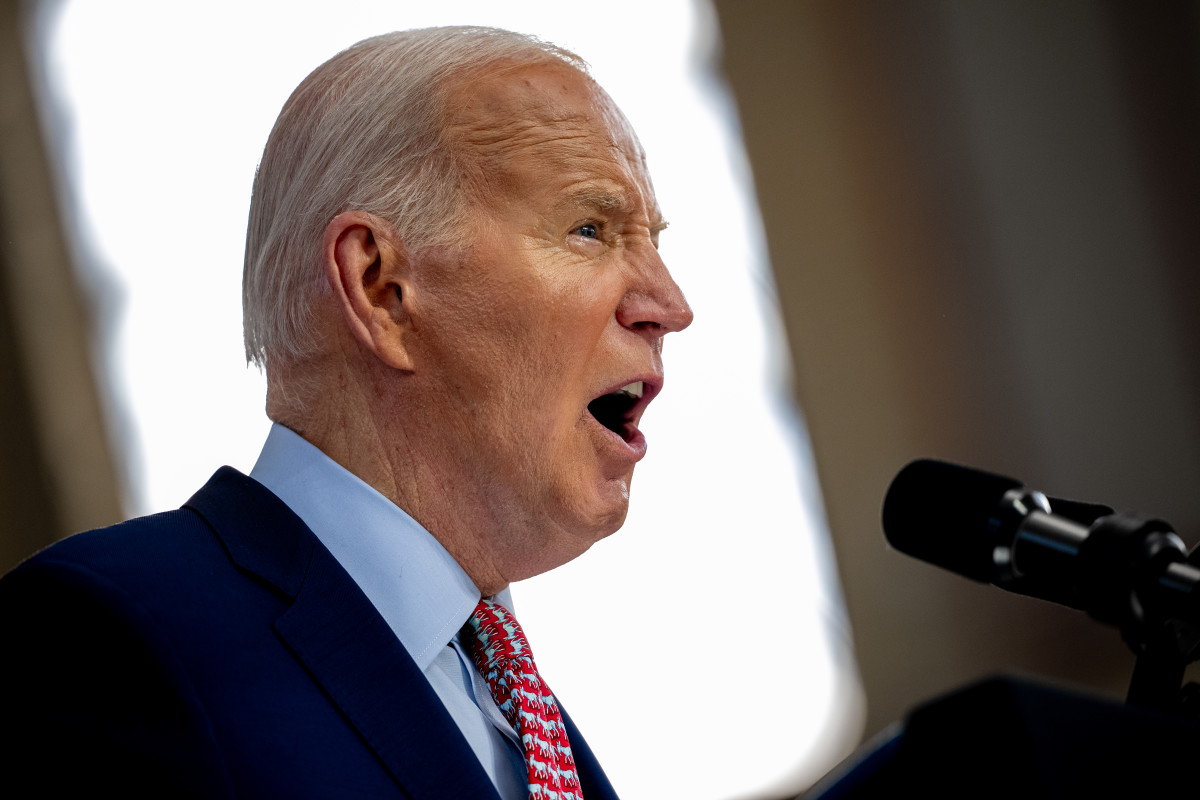
According to data from the Environmental Protection Agency, the most fuel efficient car sold in the United States, regardless of any of the EPA size classes and excluding electric vehicles is the humble Toyota Prius (TM) with its EPA combined 57 miles per gallon.
When taking account of its 11.3 gallon fuel tank, the effective range of the fuel-sipper should be around 644 miles under ideal conditions, but a new vehicle from Chinese brand BYD (BYDDY) claims to double it in a package that is much cheaper than the Prius' $27,950 asking price.
Related: Aston Martin exec has a powerful message about its gas-guzzlers
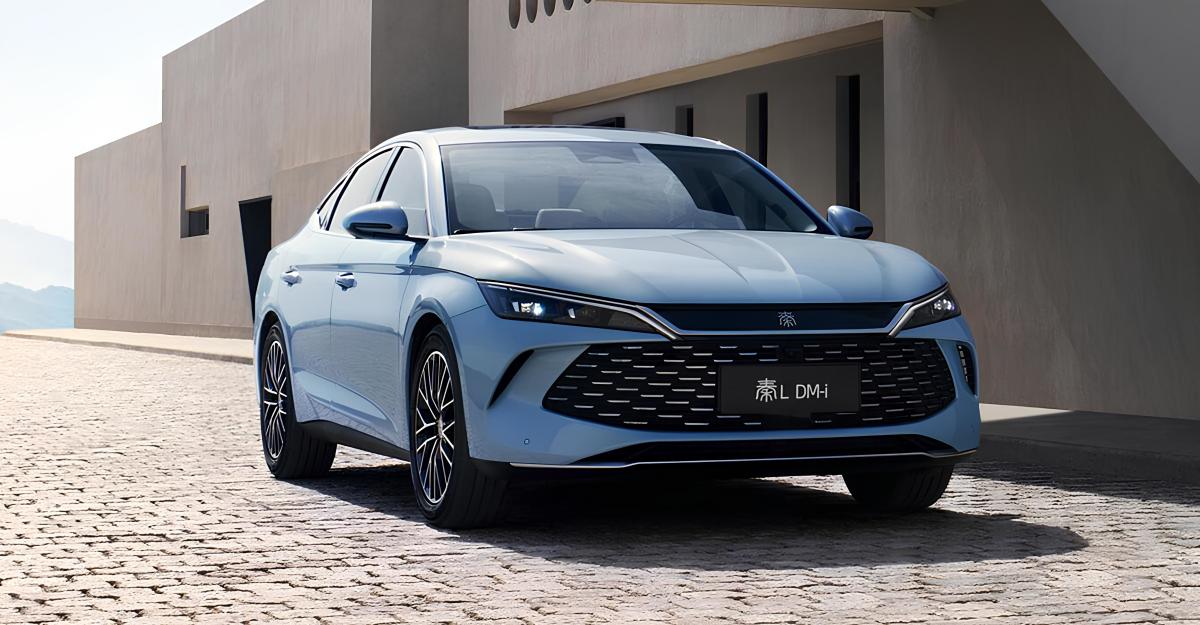
BYD
The Chinese automaker is launching a series of new hybrids that are said to have a combined range gas and electric range of 2,100 kilometers, or just above 1,300 miles; equal to a round trip from New York City to Detroit.
The new models, called the Qin L DM-i and the Seal 06 DM-i, use BYD's fifth generation Dual Mode (DM) plug-in hybrid technology that combines an efficient gas motor and all-electric power. Under the hood is a hybrid powertrain combining a small, but efficient 1.5-liter motor pumping out 99 horsepower and 93 pound-feet of torque mated to either a 161 hp or 215 horsepower electric motor.
BYD says that this gas engine uses intelligent combustion, variable lubrication, and split cooling systems to achieve unmatched levels of thermal efficiency, where loss of power due to heat is kept down to a bare minimum — keeping as most of its energy into actual power driving the wheels.
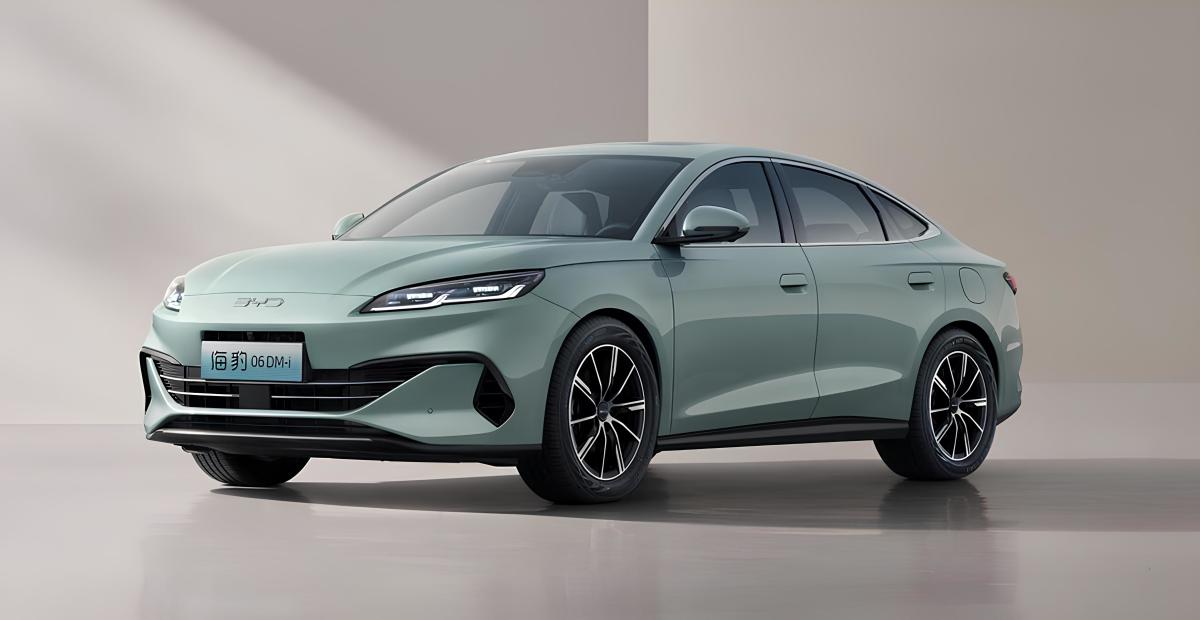
BYD
Combined with new 10.08 kWh and 15.78 kWh battery packs, the combination results in massive fuel economy gains of up to a whopping 2.9 l/100 km, or 124 miles per gallon and an effective range of 1,300 miles without charging or visiting a gas pump. Additionally, its plug-in hybrid capabilities allow the new cars to travel 50 miles on all-electric power on the 10.08 kWh battery, and 74 miles on the bigger 15.78 kWh battery.
Best of all, the BYD Qin L DM-i and the Seal 06 DM-i start at an equivalent of $13,750 and top out at an equivalent of $19,300 in China, undercutting the $27,950 Toyota Prius, the $32,975 Toyota Prius Prime plug-in hybrid, as well as the $32,895 Honda Accord Sport Hybrid.
More Automotive:
- Maserati exec defends the use of a car feature drivers hate
- Feds are skeptical about the safety of popular driver-assist tech
- Young guys who like loud cars are likely to be psychopaths, study suggests
Ripe time for hybrids, but the opportunity stops at the border
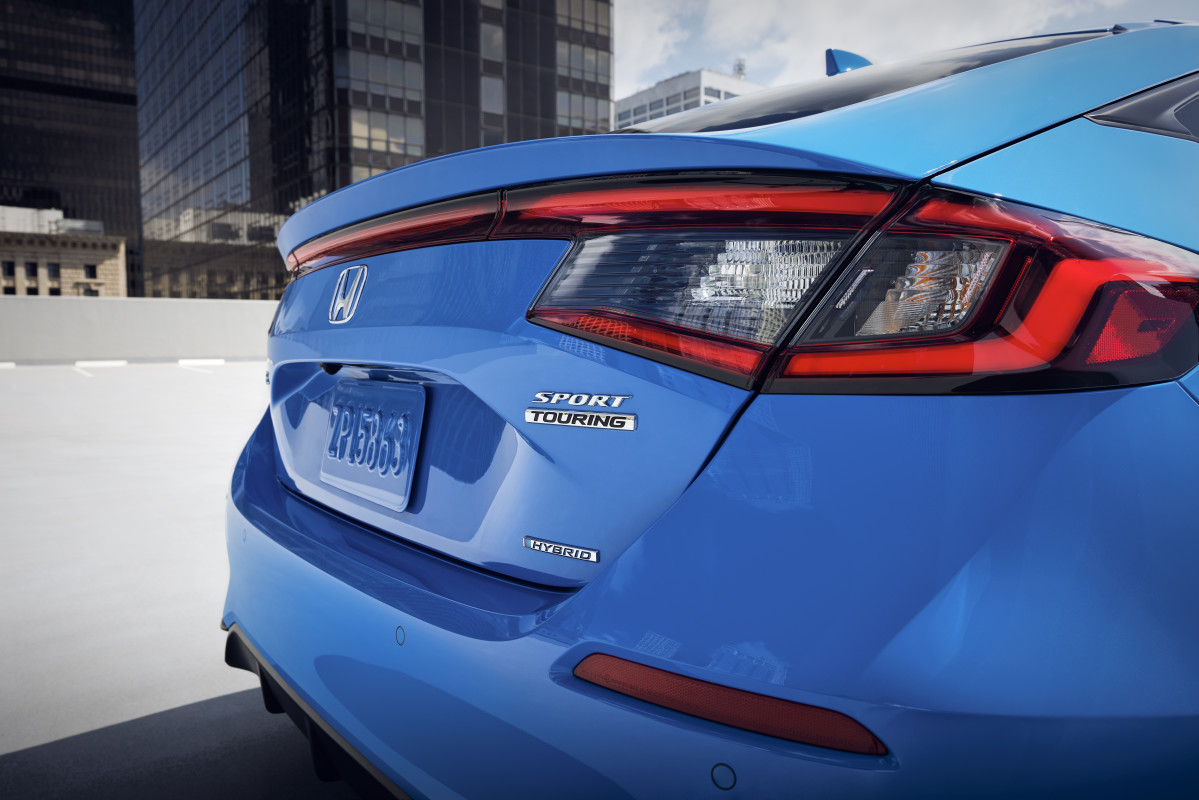
Honda
The announcement of BYD's miracle hybrids come at a very opportunistic time for the the American auto market, as huge automakers like Volkswagen are shifting their resources away from EVs into hybrid technology, as concerns over range anxiety and a lack of effective charging infrastructure keep them from adopting the plug.
“The sentiment is the ICE, the plug-in hybrids are picking up,” VW Group of America CEO Pablo Di Si said in an interview with Automotive News. “There’s some concern, some pushback on electric vehicles from consumers, particularly on the charging infrastructure.
It is clear to automakers that hybrid models of popular cars are the kind of cars that ordinary Americans are willing to shell out their dollars to buy. Japanese rival Honda, for example, saw hybrid versions of its mega-popular CR-V family crossover SUV and its Accord midsize sedan account for over one-quarter of its sales in 2023. Recently, it unveiled a hybrid version of the popular Civic compact sedan, projecting that it will account for 40% of sales of the legendary nameplate.
With such a ripe market for hybrids, one would assume that BYD can take advantage of an opportunity. Unfortunately, such vehicles will not make it to our shores, chiefly due to newly announced 100% tariffs on Chinese EV imports enacted by the Biden Administration.
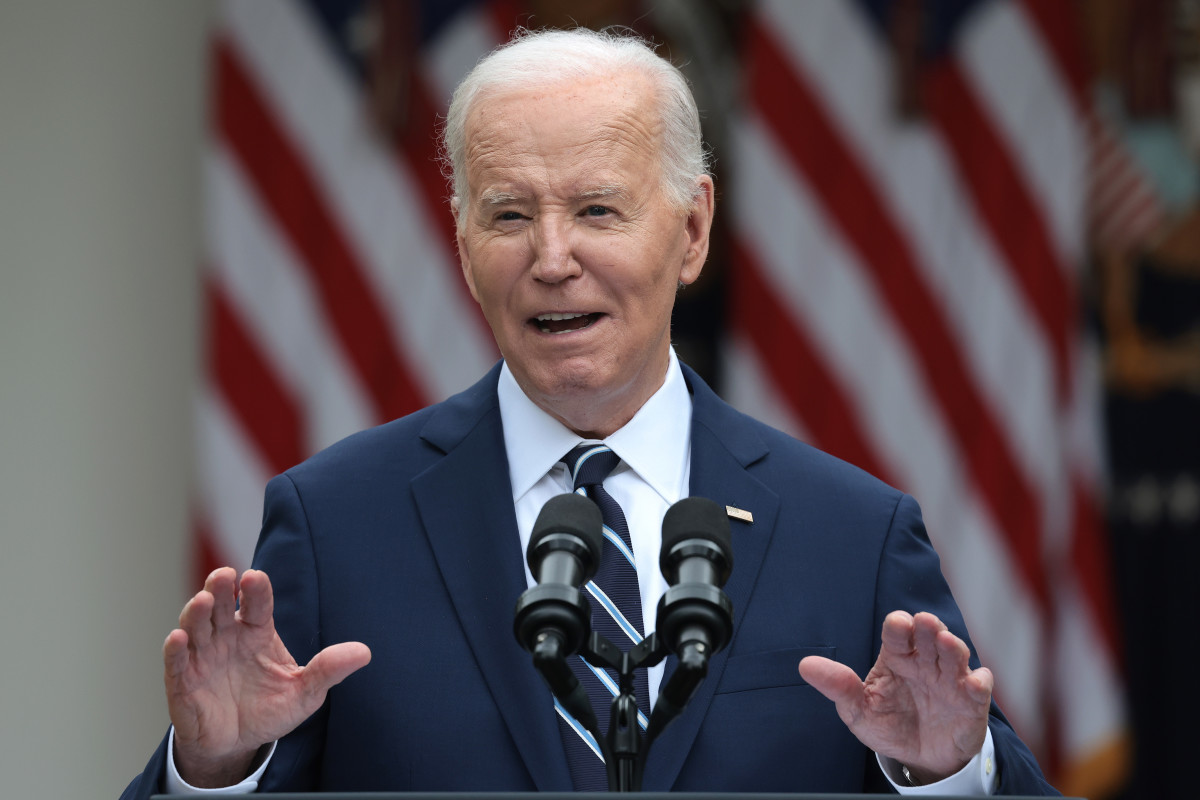
In his speech announcing the tariffs on May 14, the president said that it is "unfair" for Chinese companies to create cheap products because of subsidies from its government, and that China's practice of producing more than the market demands creates an unequal playing field.
"We’re not going to let China flood our market, making it impossible for American automakers [...] auto manufacturers to compete fairly," Biden said. "I’m determined that the future of the electric vehicles will be made in America by union workers. Period. And we’ll do it by following international trade laws to do it."
However, experts like Ian Bremmer, the president and founder of political consulting firm the Eurasia Group say that such a move can be detrimental when accounting for Biden's climate goals, where the purchase of cheap BYD EVs and hybrids can be incentivized in the view of achieving the president's lofty emissions goals for the auto industry.
"The interesting political point here is that Biden is meant to be the pro-climate president," Bremmer told ABC News. "But we don't support reducing emissions when it comes at the expense of American labor. And we don't care if that means it's less competitive and the Americans are going to have access to more expensive, low quality electric vehicles. That's the message that they're sending."
Related: New study suggests EVs are supercharging an impending environmental crisis
Additionally, a new study by Cornell and UMich professors showed that the production of EVs suggests that there might not be enough copper that can be mined quickly enough to make the wires and other components needed to fulfill the current goals toward renewable energy.
Though electric vehicles require much more wiring than a normal, gas-powered internal combustion car, University of Michigan Earth & Environmental Sciences professor Adam Simon suggested that hybrids could be a happy medium for the sake of a crisis that is currently overlooked.
"We know, for example, that a Toyota Prius actually has a slightly better impact on climate than a Tesla," Simon said. "Instead of producing 20 million electric vehicles in the United States and globally, 100 million battery electric vehicles each year, would it be more feasible to focus on building 20 million hybrid vehicles?"
BYD, which trades on OTC markets as BYDDY, jumped 5.45% on May 29, ending the trading day at $55.62 per share.
Related: Veteran fund manager picks favorite stocks for 2024







